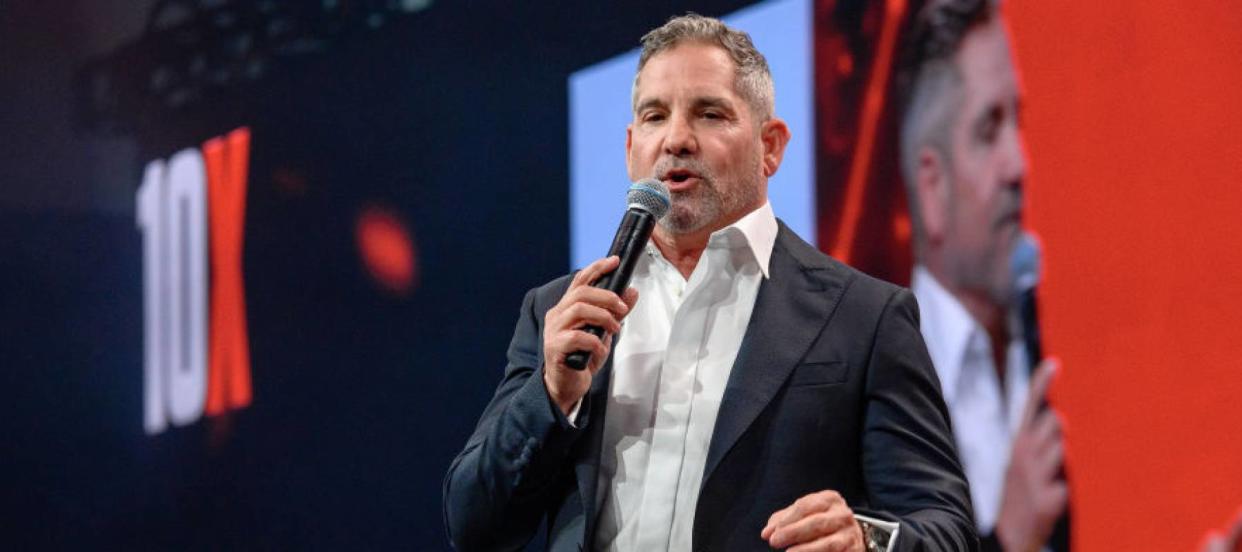Grant Cardone claims the goal of wealthy Americans is to 'earn no income' — here's why and how you can apply the same techniques (even if you're not ultra-rich)

Boosting income is often a great way to improve your financial situation. But for Grant Cardone, the ultimate goal is to avoid income altogether.
“The goal of the wealthy — earn no income,” he said on stage at a conference.
Cardone’s suggestion may seem counterintuitive at first, but it’s supported by the “earned income” data of the wealthiest people in the country. Here’s a closer look.
Income avoiding billionaires
Many of the richest people in America earn very little income. Warren Buffett has paid himself just $100,000 in the form of a salary since the 1980s. Jeff Bezos’ base salary of $81,840 has remained more or less the same since 1998. Mark Zuckerberg goes even further and pays himself an annual salary of just $1 (that’s not a typo!).
Of course, none of these men got to the top of the billionaire ranking list by saving this meager salary and making coffee at home. Instead, their wealth is in appreciating assets - such as the stock ownership of their various businesses.
When you own a sizable piece of a trillion-dollar corporation, selling a few shares or borrowing against them is enough to fund your private jet lifestyle. These maneuvers potentially reduce the tax liability billionaires would have to experience if they paid themselves billions of dollars in salary.
“If you earn no income you pay no taxes,” sums up Cardone.
This is why the richest 400 Americans now pay an effective tax rate of just 23%, lower than the 24% tax rate paid by the bottom half of income earners, according to economist Gabriel Zucman of the Paris School of Economics.
He wrote, "If Amazon gave its profits back to shareholders as dividends, which are subject to income tax, Mr. Bezos would face a hefty tax bill. But Amazon does not pay dividends to its shareholders. Neither does Berkshire Hathaway or Tesla ... Unless Mr. Bezos, Warren Buffett or Elon Musk sell their stock, their taxable income is relatively minuscule. But they can still make eye-popping purchases by borrowing against their assets." Bezos was also able to avoid around $600 million in capital gains taxes by moving to Florida from Washington state.
However, Cardone believes ordinary investors can also benefit from tax-saving maneuvers by focusing on a specific asset class: real estate.
Real estate tax efficiency
Cardone is a real estate mogul, so it’s unsurprising that he recommends this asset class over others. Property certainly has some unique tax advantages that could help investors accumulate wealth at a faster clip.
According to Quicken Loans, these tax advantages include deductions for real estate-related expenses such as mortgage payments, property taxes and insurance. Investors can also use the depreciation of their rental property to mitigate some tax liabilities.
Donald Trump’s Tax Cuts and Jobs Act of 2017 added some more benefits such as the pass-through tax deduction. This act also introduced Opportunity Zones where investments get favorable tax treatment to boost regional growth.
Perhaps the most famous tax program for real estate is the 1031 Exchange, which allows you to sell a property and buy another without incurring capital gains taxes or at least deferring taxes for later.
Every dollar saved in taxes can be redeployed into more real estate, potentially helping you generate wealth faster than the typical strategy of saving and investing in retirement accounts.
This article provides information only and should not be construed as advice. It is provided without warranty of any kind.
